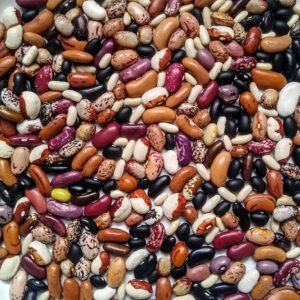
 Today we welcome summer and bid adieu to one of the coolest and wettest springs on record here in the Northwest. While our changing climate poses unpredictable shifts in temperatures and seasons, one thing remains certain: seed bred in organic farming conditions will deliver beneficial traits that can adapt over time to a range of growing seasons and local ecological conditions.
Today we welcome summer and bid adieu to one of the coolest and wettest springs on record here in the Northwest. While our changing climate poses unpredictable shifts in temperatures and seasons, one thing remains certain: seed bred in organic farming conditions will deliver beneficial traits that can adapt over time to a range of growing seasons and local ecological conditions.
In our research update below, you’ll get a glimpse of Organic Seed Alliance’s (OSA) role in this important work, including our carrot and sweet corn projects that aim to expand farmers’ options in seed appropriate for organic systems. Just as seed adapts to our changing environment, we too must adapt, as evidenced in our decision to work with a different variety of winter squash this year to meet regional needs as part of our Northern Organic Vegetable Improvement Collaborative trials.
Our work never stops with research. OSA recently released comprehensive organic seed production tutorials through eOrganic, the national organic Extension website, that provide a multi-media experience for farmers and researchers across the U.S. These tutorials are a reminder of the important niche our educational efforts are filling. You can check them out here.
Finally, as we advocate for protecting organic seed systems from threats like GMOs, we must also advocate for policies that encourage the development and expansion of these systems. We are glad the National Organic Program (NOP) just released a draft guidance document on the use of organic seed, but we believe the NOP could do much more to support increased availability and usage of organic seed. See our advocacy update to learn how you can help.
Happy Solstice,
Micaela Colley, Executive Director
